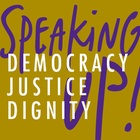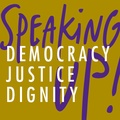My brother said the actions by a church that did not want us back were deliberate and intentional and had been concealed by a “code of silence” until Greg revealed them.
The contrast between the companion churches in Vancouver and Seattle is a tale of two bishops, a good shepherd and a wolf in sheep’s clothing. Bishop Huston tends his flock. Bishop Heathcotte rends them.
Love was alive in the Seattle church. The personal belongings of his exiled parishioners were piled in squares marked all over the floor of the parish hall. Bishop Huston had a sense of his flock incarcerated in the camps, as friends. They sent letters to him from their places of internment. He monitored the hall. He found the items. He made parcels. He mailed them. Personally.
God bless the soul of Simeon Arthur Huston.
Before the war was over, Japanese Americans came home. Those whose houses were rented to Boeing employees, lived in the church hall, now transformed into a hostel. Japanese American Espicopalians are today, vibrant and alive. Their community thrives.
Most of the dispersed Japanese Canadian Anglicans, still faithful to the Anglican church, were in Toronto. And in Toronto, they went from church to church to church to church to church. Five churches. When they raised funds to purchase their own building, they were refused permission to do so by the diocese of Toronto.
Four years after the day of the diocesan council meeting, Greg was telling the story in Toronto at a Council of General Synod meeting. I was not able to rouse interest among Japanese Canadian Anglicans in Toronto though I tried and begged. Fellow dustballs, I thought, “the only Japs in town,” and at least two of them insisting for all they were worth that they were Canadians, Canadians, not Japanese Canadians.
You can sweep dustballs out of the dark, but you can’t sweep the dark out of dustballs. At least not all of the dark, of all the dustballs, all the time. Some of us were so diminished that when we opened our mouths, no sound came out at all. Others regained the capacity to howl. Some dustballs did little except howl. Rarely did we have the grace to say thanks. From the vantage point of dustballs all we could see were boots ready to stomp.
What happened at the Council of General Synod meeting in Toronto where Greg was speaking, was completely unexpected and astonishing to me. It was a tale of two primates. One, Archbishop Howard H. Clark ordered my brother to silence. The other, Archbishop Fred Hiltz offered his grief and a free-way ticket out of dustballdom.
It happened in a moment that took less time than a rooster crowing, less time than the warmth flowing down my arm when I touched the cherry tree. The plaque telling our story was handed to him and as he looked down on it, I glanced at his face. It was trembling and close to tears. I will never forget the healing of that moment when I knew that he knew of our lifelong sorrow.
For I have heard their sorrows, said God to Moses.
It was the moment the Goddess of Nanking smiled through the ether and winked at me.
*Joy Kogawa was a panelist in the “Poetic License? Nikkei Writers and the Representation of History” and “Border Crossings: A Comparative Assessment of Japanese American and Japanese Canadian Redress” sessions at JANM’s National Conference, Speaking Up! Democracy, Justice, Dignity on July 4-7, 2013 in Seattle, Washington.
Listen to the session "Poetic License?" >>
Listen to the session "Border Crossings" >>
© 2013 Joy Kogawa






